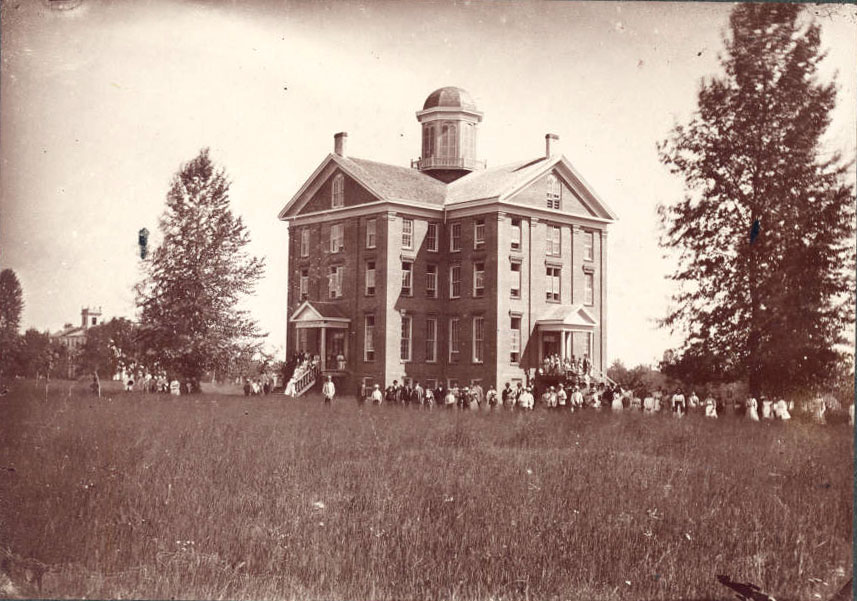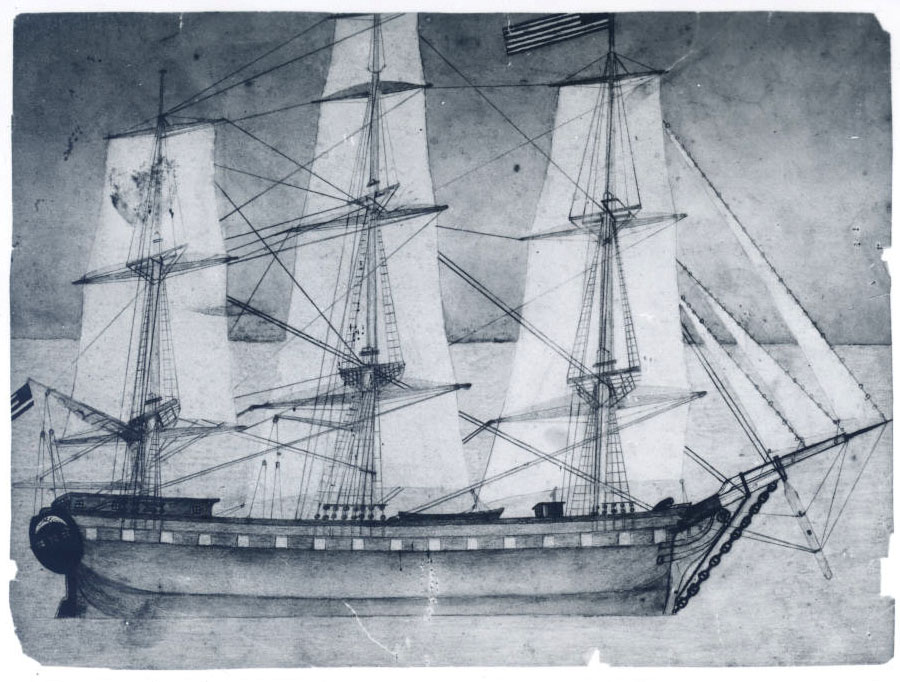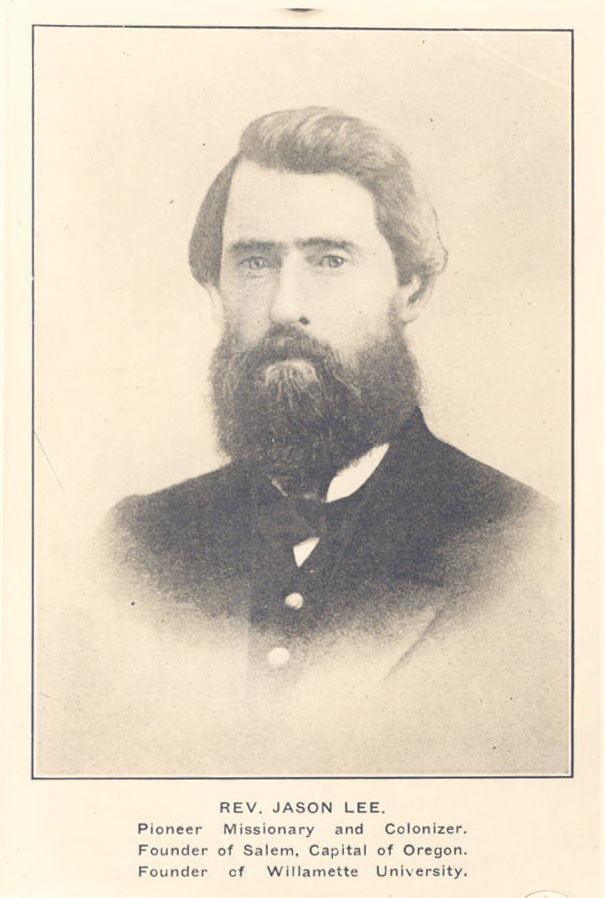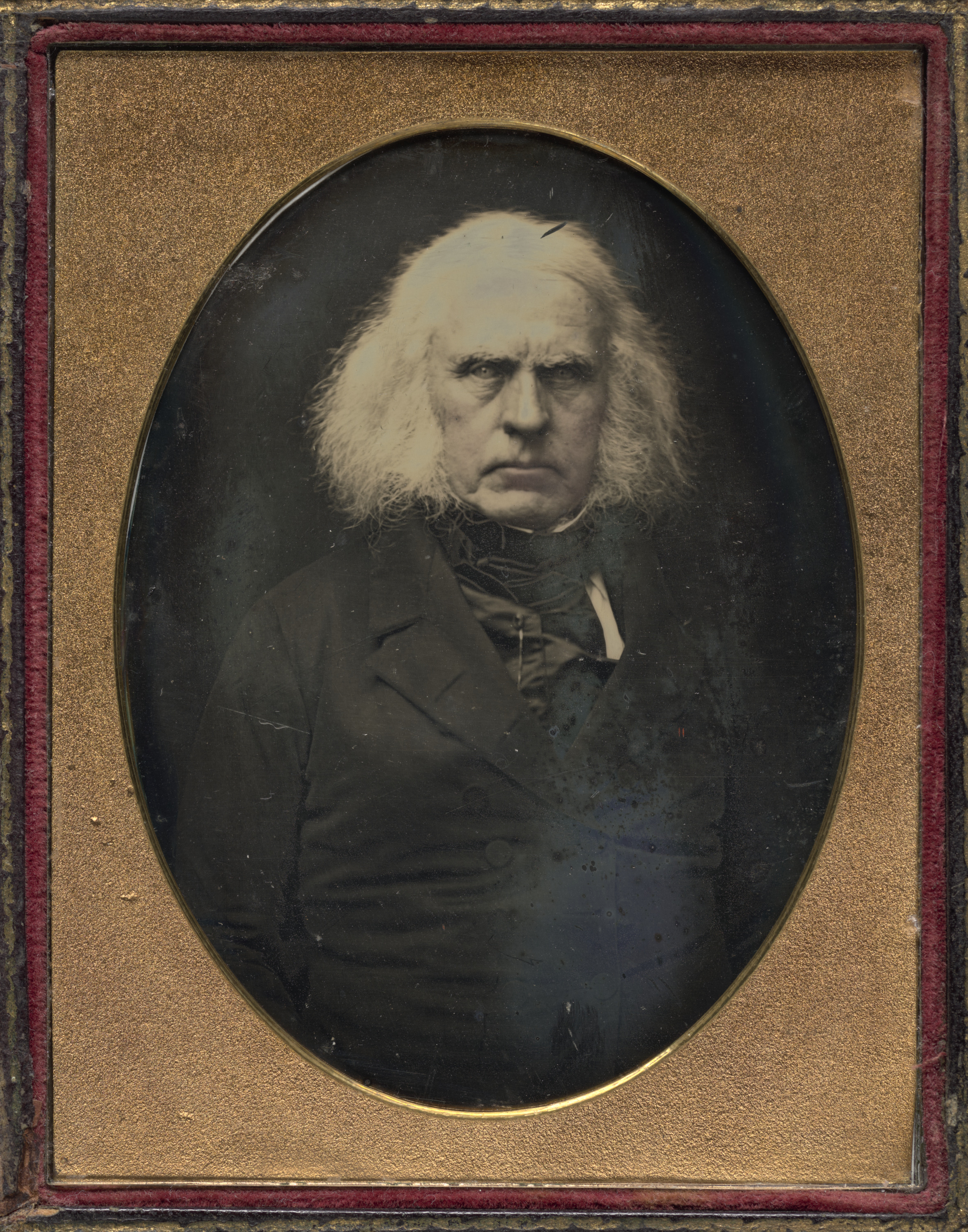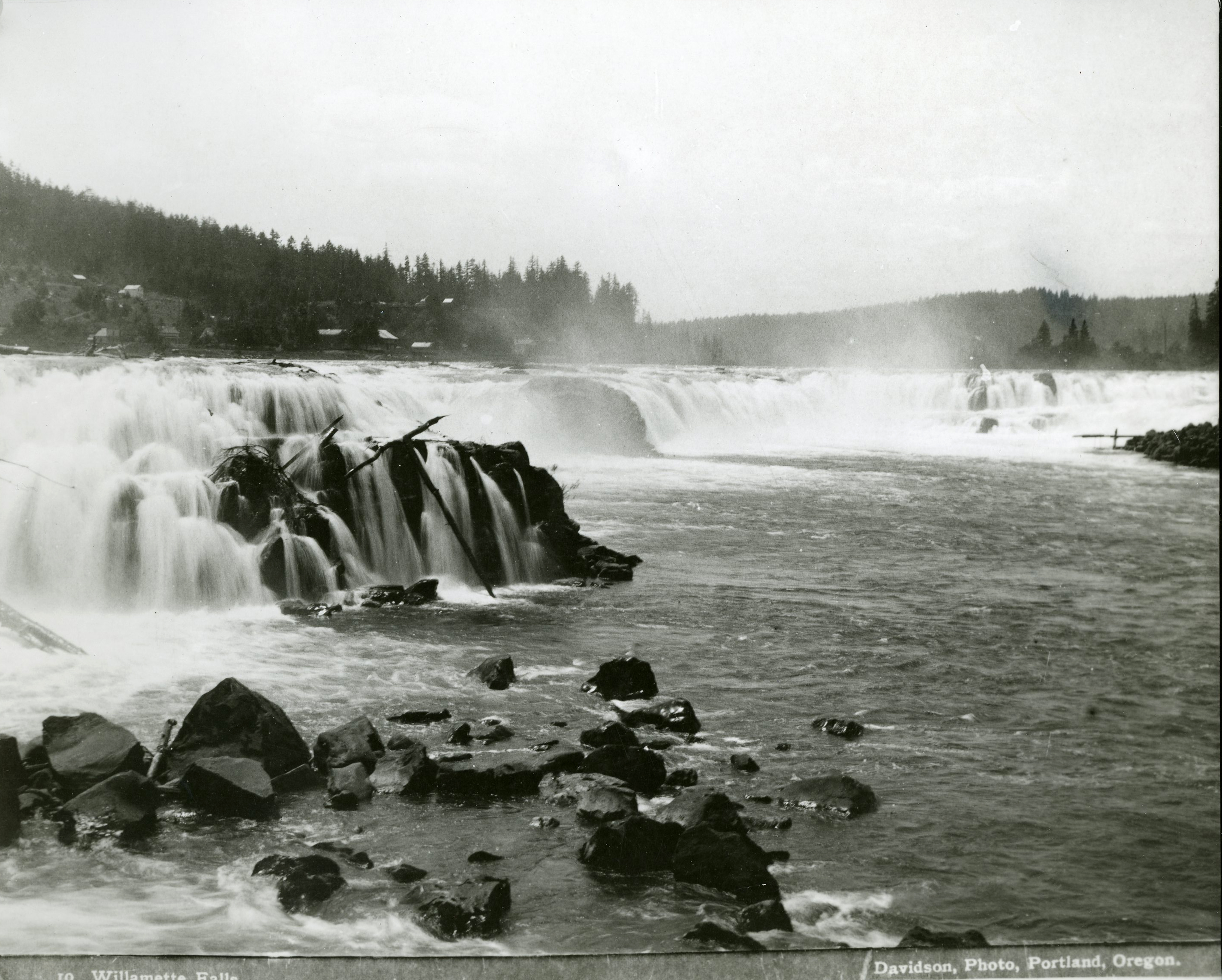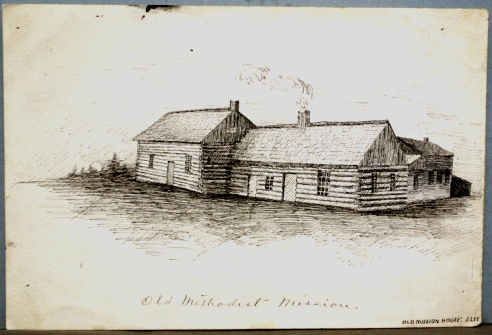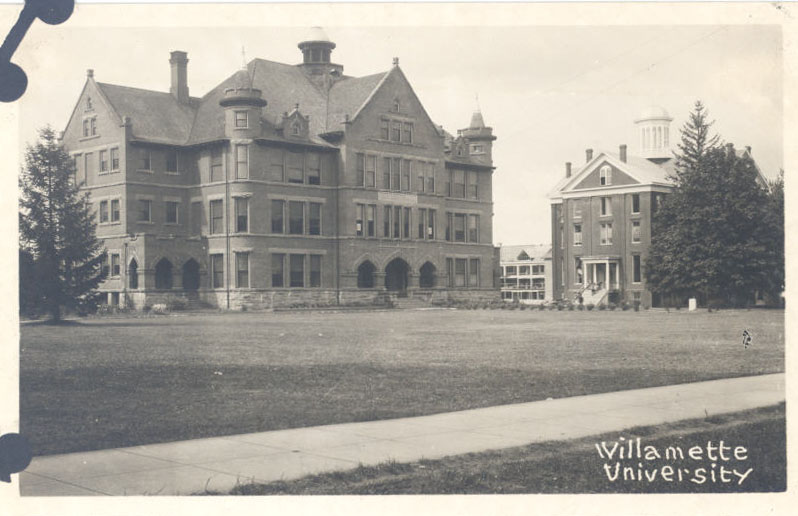In most histories of Oregon, Alvan Waller appears most prominently as the Methodist missionary who did personal battle with John McLoughlin and the Hudson’s Bay Company over contested land claims at Willamette Falls. If for no other reason than his contretemps with McLoughlin, Waller holds a conspicuous place in Oregon’s early history, but his life work building up the Methodist community in the region is a more substantial and important legacy.
Born in Abington, Pennsylvania, in 1808, Alvan Waller moved to Elba, New York, as a young man after committing himself to proselytizing the Methodist faith as a circuit rider in the Genessee Conference. He married Elpha White in 1833, and they raised a family of five children, the last two born in Oregon. His success as a circuit rider in New York’s so-called Burned Over District, a hotbed of evangelical Christianity, attracted the attention of Jason Lee, who encouraged Waller to join him at the Willamette Mission in Oregon.
Leaving New York in October 1839, Waller, Lee, and fifty others—the so-called Great Reinforcement for the mission—sailed on the Lausanne around the Horn, arriving in the Willamette Valley in June 1840. Once in Oregon, Waller took up residence at a new mission at Oregon City, where he quickly became embroiled in a land dispute with John McLoughlin and the Hudson’s Bay Company.
McLoughlin had established a claim to land near the base of Willamette Falls in 1829, but neither he nor HBC had significantly improved the property. Waller doubted the legality of McLoughlin’s claim and aggressively squatted on the Oregon City site in 1841 to construct a mission building. He hired Indian laborers to help him construct the mission house, which explorer Charles Wilkes described as a house “built of rough materials” but “very evident that neatness and order prevailed.”
McLoughlin objected to Waller’s activities, beginning a tempestuous argument between the Methodists and HBC officials over the claim. In 1842, McLoughlin began selling lots, while Waller threatened litigation, yet neither HBC nor the Methodists could establish legal ownership to land that Great Britain and the United States co-occupied under the Convention of 1818. By 1843, Waller had abandoned the claim at Willamette Falls for $500 in personal payment from McLoughlin and returned to the Willamette Mission.
Waller’s life work focused on Methodist education, first as a contributor to the Oregon Institute, the Willamette Mission’s school for white children, and second as agent for Willamette University, the Institute’s successor institution at Salem. By the early 1850s, Waller seemed to have come full circle to his days as a circuit rider, as he drove his one-horse hackney from homestead to homestead in the Willamette Valley, preaching and conducting weddings and funerals. Mostly, however, he had his hand out for donations to a grand project: financing a substantial building to anchor Willamette University.
After more than a decade of collecting funds, Waller handed over $40,000 to construct University Hall, a five-story brick building, completed in 1867. He continued to raise money for the university until his death in December 1872 at age sixty-four. In 1912, the university put his name on the building he largely built, and Waller Hall continues in use on campus to the present day.
-
![]()
Alvan Waller.
Courtesy Oreg. Hist. Soc. Research Library, OrHi391
-
![]()
Waller Hall.
Courtesy Oreg. Hist. Soc. Research Library, OrHi562
Related Entries
-
![Great Reinforcement (1840)]()
Great Reinforcement (1840)
One of the signal immigrations to Oregon came by sea in 1840, years bef…
-
![Jason Lee (1803-1845)]()
Jason Lee (1803-1845)
Few names in the history of early nineteenth-century Oregon are better …
-
![John McLoughlin (1784-1857)]()
John McLoughlin (1784-1857)
One of the most powerful and polarizing people in Oregon history, John …
-
![Willamette Falls]()
Willamette Falls
The largest falls in Oregon and the sixth in the United States by volum…
-
![Willamette Mission]()
Willamette Mission
Willamette Mission was the first noncommercial agricultural community e…
-
![Willamette University]()
Willamette University
Willamette University, the oldest university in the West, was founded i…
Map This on the Oregon History WayFinder
The Oregon History Wayfinder is an interactive map that identifies significant places, people, and events in Oregon history.
Further Reading
Gatke, Robert Moulton. Chronicles of Willamette: The Pioneer University of the West. Portland, Ore.: Binfords & Mort, 1943.
Loewenberg, Robert J. Equality on the Oregon Frontier: Jason Lee and the Methodist Mission 1834-1843. Seattle: University of Washington Press, 1976.
Sampson, William R., ed. John McLoughlin’s Business Correspondence, 1847-48. Seattle: University of Washington Press, 1973.


